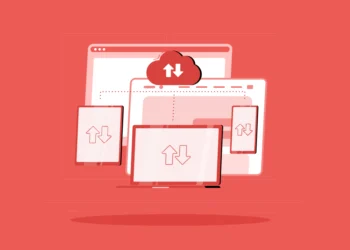
Plus: Can you spot the AI videos; major food distributor gives repetitious statements on hack.
Flying in the summer is always a gamble. Will you have blue skies and smooth sailing or a nightmare spate of storms that will leave you longing for your cubicle again?
This weekend, it was unfortunately the latter for passengers flying Delta through its primary hub of Atlanta.
After a vicious storm sent hail pounding against planes and lightning so severe that the air traffic control tower had to be evacuated, nearly 1,000 Delta flights were cancelled and another 1,100 were delayed. Passengers found themselves trapped in the Atlanta airport as alternate flights, rental cars, hotels and other means of transportation were in short supply.
Delta posted a statement on its website explaining the situation and what steps were being taken to help passengers stuck in this difficult predicament.
“You expect and deserve the industry-leading reliability and service that Delta people have long worked to deliver,” wrote Chief Customer Experience Officer Erik Snell. “That’s why, when we fall short, we work around the clock to make it right.”
A detailed explanation of the extent of the storms followed, and then a full-throated apology.
“On behalf of Delta’s 100,000 people who are working to restore our operation to its hallmark reliability, I am sorry for the inconvenience and uncertainty this event has caused. We sincerely appreciate your patience as we restore operations.”
According to an internal document posted by an aviation industry journalist on Bluesky, Delta chose to begin offering reimbursement for hotels, rental cars and other expenses, even though airlines typically don’t offer compensation in the wake of a weather event.
“Even though this event is not within our control, saying ‘I’m sorry’ to customers goes a long way,” the document reads.
Why it matters: No airline is ever going to be free of major weather events. They’re going to happen again and again. Customers will be (understandably) upset. There will be short-term chaos, and people who have to sleep on airport floors. You can set your watch by it. But it’s how airlines respond that will make the difference between a momentary blip and a long-ranging disaster.
In this case, Delta rolled out a detailed statement about what was happening and how they would respond to the situation. It was signed by an actual person, which further helps with accountability and connection in a frustrating time. They made it clear, both internally and externally, that even though they did not cause the storm, they would be responsible for the costs associated with it.
The actual execution of this is not for us to judge. Getting thousands and thousands of people home and refunded is a major logistical undertaking. But at least from a communications standpoint, Delta did all it could to reassure passengers, give employees strong guidance on their response and do what they could to make things right.
Editor’s Top Reads:
- AI video is getting so good that even when you’re looking for it, it can be hard to identify. That’s the message I took away from a New York Times quiz asking you to simply tell if brief video clips were real or AI-generated. I’m a professional who studies and works with AI regularly, yet I still only got a 7/10 on this quiz — twice thinking AI-generated content was real and once mistaking an actual video for AI. It’s humbling, and an exercise I would encourage each of you to undertake. Deepfakes are here, real and incredibly simple to make. Determining whether or not a video is real could be a major issue — is that video of your CEO saying something racist real or a lie? Is that TikTok of a customer confrontation just a fake designed for viral outrage? You need to know. As a bonus, the article also includes the full, exact prompts for the AI-generated videos, which can be a helpful learning tool if you’re using AI video making for good instead of evil. Drop your score in the comments.
- United Natural Foods, which is the primary food supplier for Whole Foods, is still recovering from an early June cyberattack — and dribbling out short, repetitive statements. The attack led to major distribution problems, including bare shelves at Whole Foods and other stores. The incident is expected to cost the company $55 million to $80 million, according to the Wall Street Journal. While the company has posted regular updates to its website — five since June 9 — they don’t actually give much information and often repeat the same language nearly verbatim. “Our customers, suppliers, and associates remain our highest priority, and we are sharing updates with them every step of the way,” the June 13 statement reads. “Our customers, suppliers, and associates remain our highest priority, and we are working closely with them every step of the way,” says the June 15 update. Four of the five updates, all but the most recent, include the same exact statement about customers, suppliers and associates. While this statement may be true, the repeated language sounds robotic and does not give the impression that a person is taking care of these groups. While it’s great to give ongoing updates in a difficult situation, writing the correct words isn’t enough. You need to have real emotion behind them, or no one will believe you.
- Last week, I was on vacation in Florida and saw two new Raising Cane’s chicken restaurants under construction. That’s no coincidence. The Louisiana-based chain is expanding rapidly and has dethroned KFC as the third most popular chicken restaurant in the U.S. (Chick-fil-A and Popeyes are one and two). The secret to their success? Consistent experience and branding. “We do not get into value play. We do not get into limited-time offers,” said AJ Kumaran, co-CEO of the chain. “When our customers pull into the drive-thru or walk through the doors, they immediately know what to expect.” In an age when so many brands are competing to be the loudest or the most surprising experience out there, consistency can sell. And as this CNBC hit shows, it can also get top-tier headlines.
Allison Carter is editorial director of PR Daily and Ragan.com. Follow her on LinkedIn.
The post The Scoop: Delta tries to make it right after nearly 1,000 flights canceled appeared first on PR Daily.














